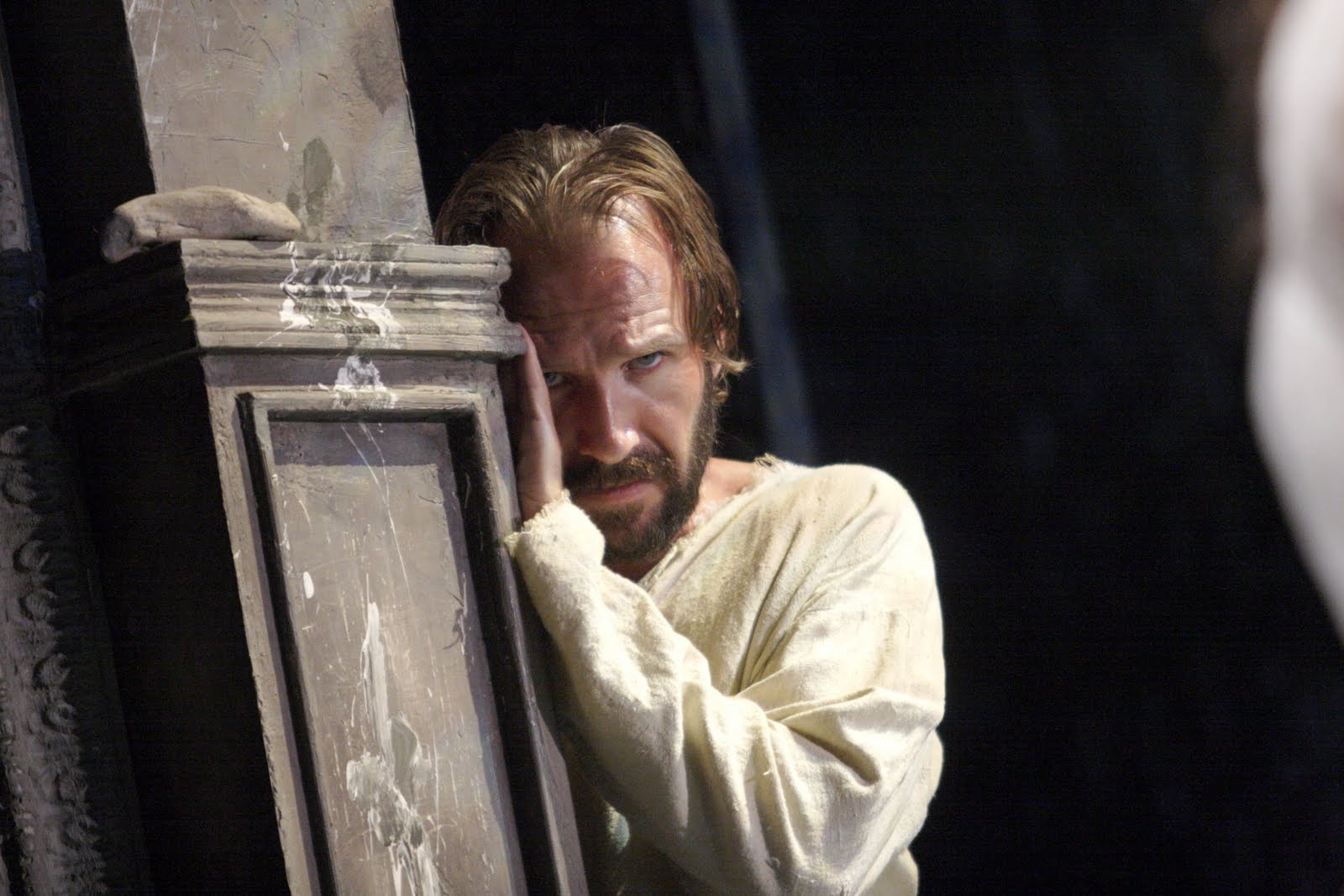The Tempest, Royal Haymarket Theatre
reviewed for The Spectator, 9 September 2011

The Tempest is back in town, and with a star like Ralph Fiennes in the lead, it’s unlikely that Trevor Nunn’s new production will need much help from the critics to get bums on seats. But although Fiennes brings a moving dignity to Shakespeare’s tale of a usurped duke plotting a magical revenge, he’s not enough to distract from an ensemble cast who seem drained of energy, in a production played so straight it’s soporific.
The last major production of The Tempest to hit London was Cheek by Jowl’s all-Russian version, back in April. That was a riot of energy, no nuance of the language safe from ostentatious re-interpretation – a brilliant reminder of the elastic possibilities of this text. By contrast, Trevor Nunn’s production eschews such whimsy, providing the text so straight up that it’s presumably aimed at introducing novices to Shakespeare’s play. But the result is that the text remains opaque: key lines are squandered, jokes ignored, menaces mumbled. Instead of being a worthy introduction, this is the type of Shakespeare that can put people off for life – on press night, there was laughter in all the wrong places.
Nonetheless, audiences who already love the play will be well-advised to add Ralph Fiennes’ performance to their collection. Fiennes has a quiet dignity as Prospero, although a production shorn so short of interpretive detail gives him little else to do but declaim beautifully. And he does. This is a Prospero who finds forgiveness hard, and his long speeches on the subject aredelivered with seductive humility. He doesn’t have the menace of a great sorcerer – this is a far cry from Voldemort – and it’s hard to imagine him waking ‘dead men from their graves’. But he does revive the play for its last two acts, reminding us just how lyrical The Tempest’s magic can be.
Fiennes is at his best when highlighting the vulnerable Prospero’s love for his daughter, Miranda. There’s tenderness to the enchantments he casts over her – a deft sleight of hand has him hypnotizing her, yet softly catching her swoon before the audience can draw a breath. He’s helped by an impressive performance from newcomer Elizabeth Hopper, plucked from the ranks of spear-carriers in Nunn’s last production for her first starring role. Hopper deserves to do well: in a notoriously difficult role, she undercuts Miranda’s innate courtliness with gawkiness more natural for a girl reared on a desert island, and her relationship with Caliban (a charismatic Giles Terera) is realistically strained.
But she’s hamstrung by an absurdly fey Michael Benz in the role of her lover, Ferdinand. Benz feels like a refugee from an RSC production of Garfield, over-articulating every consonant, eyes goggling, platinum hair making him more akin to Tom Byam Shaw’s boyish Ariel than his literary double, the implied rapist Caliban.
Ferdinand’s hyperbolic disavowal of premarital sex throws a helpful light on Prospero’s concern for Miranda, but the sexual threat that underscores these self-denying vows would be more affecting if Benz showed himself remotely capable of breaking them.
Prospero’s love for Miranda infects even the spirit world. Shaw gives an enjoyably fresh reading to Ariel’s pleas for affection from his master: a line usually inflected as ‘do you love me, master?’ becomes here: ‘do you love me, master?’, as Fiennes has only eyes for his daughter. But the extravagant mirages Ariel and Prospero conjure up distract from the human relationships, more than they illuminate them. When Ferdinand stumbles upon a dance of spirits, it looks like the cast of The Lion King, in full costume, have mysteriously turned up in one of Thomas Shadwell’s ballet-operas. That’s one of the 17th Century productions that go on for four interminable hours.
The production’s other big name, Nicholas Lyndhurst, is suitably cast as Trinculo, the drunken jester with a permanent half-moon frown, the perfect victim of Sod’s Law. Infusing his performance with the essence of Rodney Trotter, he loses some of Trinculo’s sharp wit, but the physical comedy with Caliban will get plenty of laughs.
But there’s no real darkness to his exploitation of the native islander, in a production that generally tends towards sentimentality. It’s a tendency that reaches its nadir in the final scenes. Given how hard Fiennes’ Prospero fights to forgive his usurping brother, it’s almost comic to see how easy Julian Wadham’s Antonio makes it for him – the volte-face Nunn imposes from murderous schemer to kneeling penitent has no basis in the text whatsoever. It also robs Prospero of much of his vulnerability in his final speech. With no enemies left, his abjuration of magic protection hardly seems a sacrifice.
Nunn’s resolution of the Caliban plot is more affecting. And there’s much else to enjoy here. With pre-sales of tickets topping £1million, audiences will continue to flock to Royal Haymarket, and thanks to its partnership with the Masterclass scheme, many of those will be young people paying just £2 for a ticket.
But this will add little to the history of great productions of The Tempest. And from a director whose productions of The Merchant of Venice and Macbeth shook up the world of Shakespeare, that is profoundly disappointing.
Tags: Shakespeare






